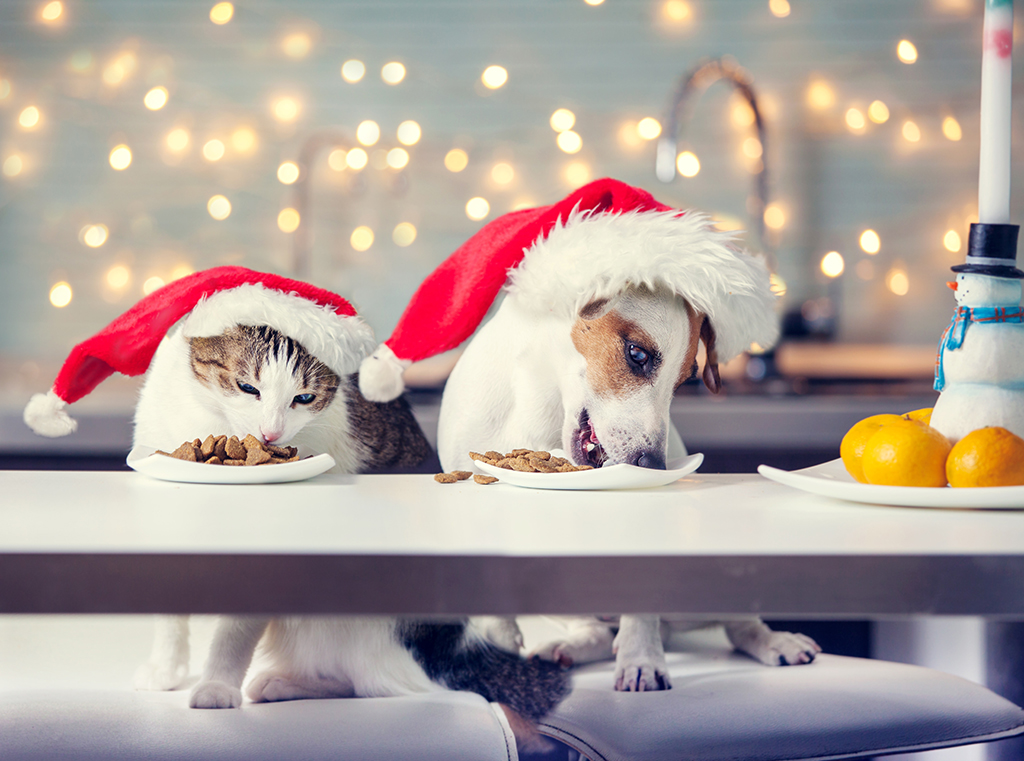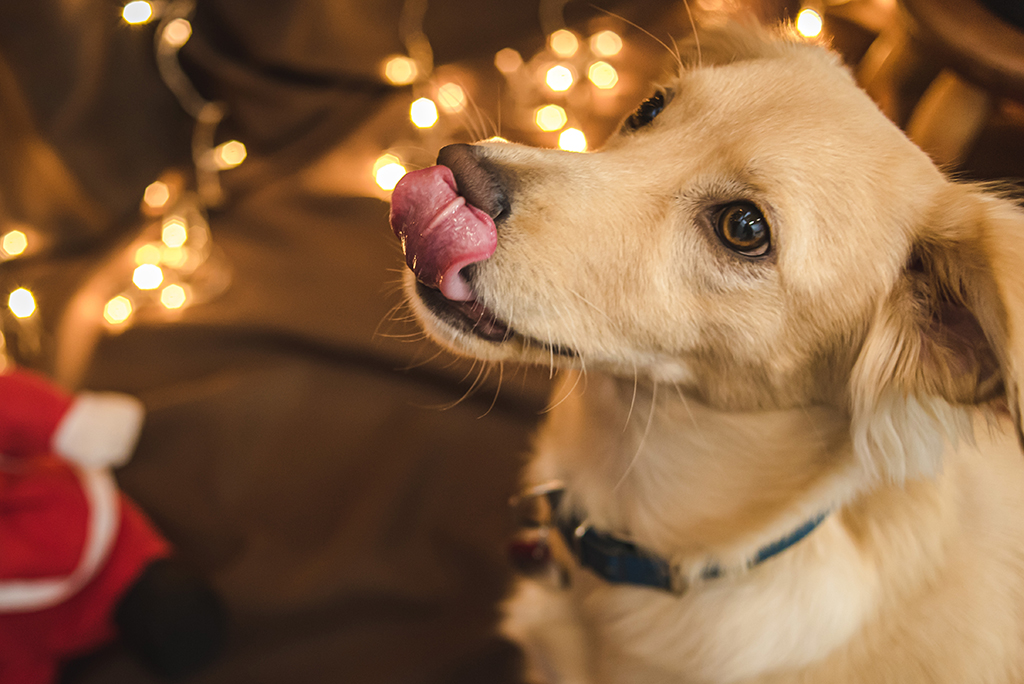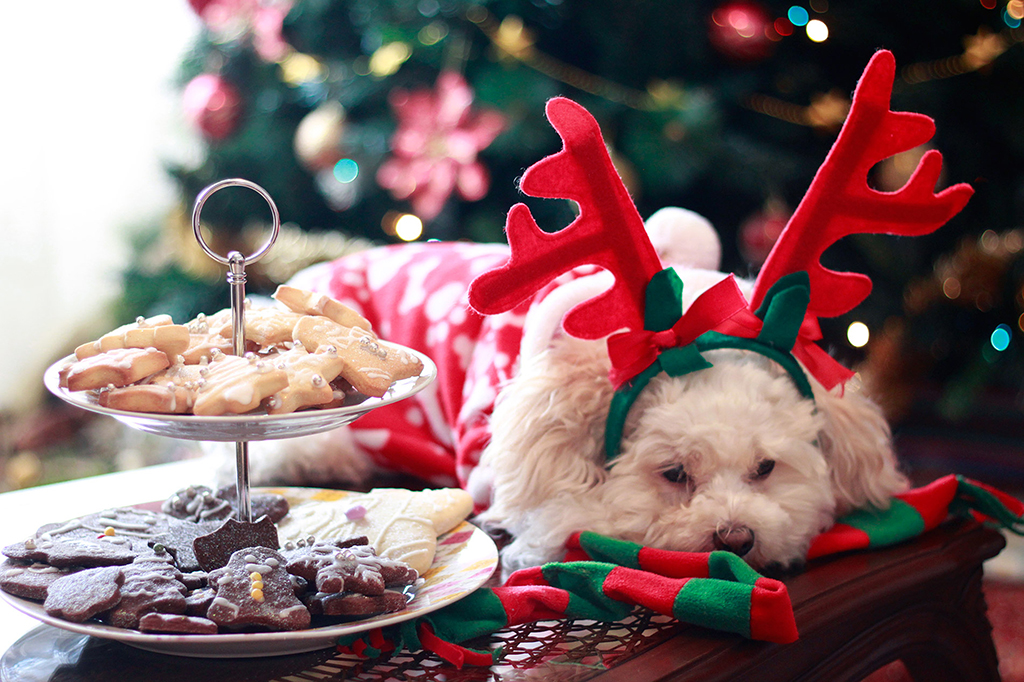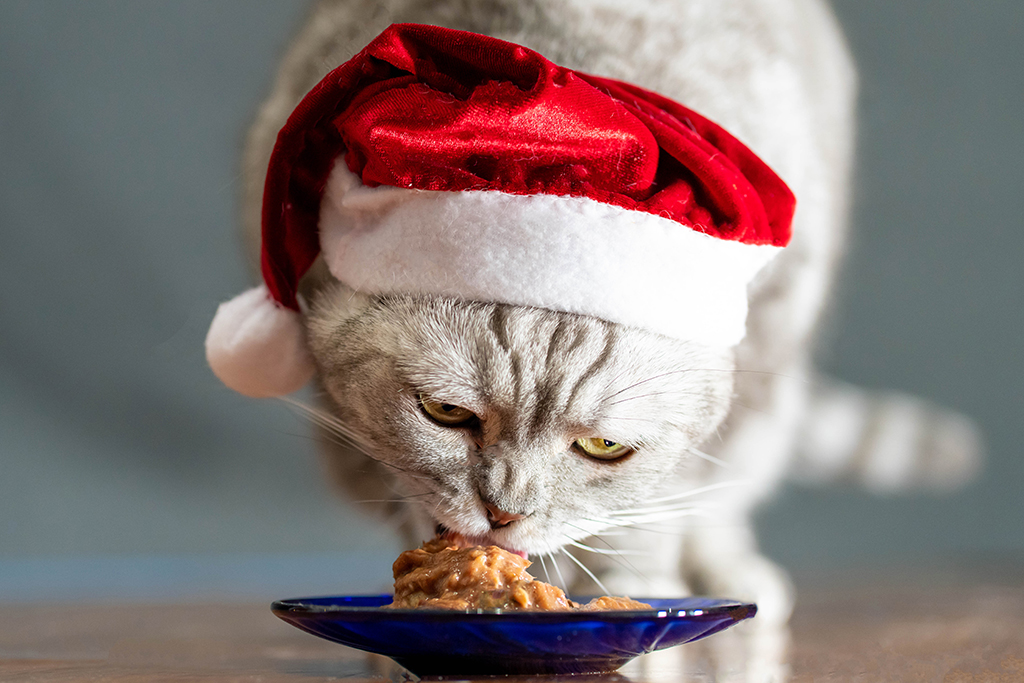
We love spoiling our pets, and what better time to do it than at Christmas? We get them Christmas jumpers and buy them gifts, and a recent survey showed that 61% of pet owners prepare a special meal for their pets at Christmas.
But while it’s nice to involve your beloved pet in the festivities, and may even seem a good way of getting rid of some of those leftovers, some foods can make our pets ill. With this in mind, we’ve put together a list of foods that you should avoid giving your pet.
Alcohol
Most of us have a little bit more alcohol around during the festive season but while it might be nice to have that glass of Irish cream liqueur in front of the fire while we’re wrapping presents, we need to be super careful about making sure our little furry friends don’t try to share our tipple.
Cats and dogs absorb alcohol much quicker than humans do and they’re more sensitive to the effects. It can cause dizziness and breathing difficulties and can even lower their body temperature and blood sugar levels, resulting in a seizure or even a coma.
It’s a good idea to make sure alcohol is kept out of the reach of pets; don’t leave a glass of wine on the dinner table, or unattended on the floor, and make sure any spillages are cleared up straight away. You might think that animals won’t be attracted to the smell and taste of alcohol, but some drinks are creamy and sugary, and some pets are just plain greedy!

Dried Fruit
When we think of Christmas treats we often think of mince pies, Christmas cake, stollen and a big fat Christmas pudding. But while the worst those foods can do to us is make us feel a bit bloated and sick after we’ve been greedy and eaten too much, for our pets it’s a different story.
Dried fruit, such as raisins, sultanas and currants can be toxic for animals and can even cause kidney failure.
Some animals are more sensitive to the effects than others; some animals can eat a large amount without any ill effects, while others can become seriously ill after just a small amount.
There’s no way of knowing how tolerant your pet is, so it’s best to keep them away from all dried fruit.
Chocolate
Christmas is probably the only time of year when it’s socially acceptable to have chocolate for breakfast; it’s a major part of the festive season. But while chocolate often makes us humans feel better, it contains a compound called theobromine that can be toxic for cats and dogs. They struggle to metabolise it and it can overstimulate their muscles, including the heart.
Dark chocolate has a higher concentration of theobromine so should definitely be avoided, but while white chocolate has lower levels it’s still not recommended for animals as it contains high levels of fat and sugar, which could cause an upset stomach.
Onions, Garlic and Chives
Lots of food that we have around over Christmas, such as sage and onion stuffing, onion gravy and garlic and chive dip, have vegetables from the allium family; these include onions, garlic, shallots, leeks and chives. These are all delicious to us humans but they contain N-propyl disulfide, which can damage red blood cells and cause anemia.

Bones
It’s tempting to give our pets bones to chew on, especially dogs; but unfortunately, that classic image of a dog chewing a bone that we’re all familiar with doesn’t show that actually chewing on bones can cause pets a lot of problems.
While the bones themselves might not be poisonous (although raw bones could contain salmonella), animal bones can still cause problems.
The biggest risk is that the bone could break more easily after cooking, and the splinters of bone could cause injuries to the mouth, throat, stomach or intestines.
Larger pieces of bone could also cause a blockage, be a choking hazard or damage their teeth.
People often give their dogs bones to chew on to help their teeth, but there are plenty of dog chews available that won’t cause any damage.
Nuts
Nuts are another traditional Christmas food that people have lying around, but it’s important to make sure your pet can’t get to them. Certain kinds, in particular macadamia nuts and walnuts, contain a toxin that can cause vomiting and neurological problems, such as seizures.
They also contain a lot of fat and salt and are very high in calories, which could lead to a risk of obesity. They are a choking hazard and if eaten, the shells could damage the gastrointestinal lining.
What To Do If I Think My Pet Has Eaten Something?
If you suspect your pet has eaten something that could cause it harm it’s better to be safe than sorry and call your vet as soon as possible, even if they’ve only eaten a small amount, and even if they’re not showing any symptoms.
If you can, take along any packaging/labels of anything you think your pet may have eaten, and try to have as accurate an idea as possible about how much they ate, and when they ate it. Don’t try to make your pet sick as this could make their symptoms worse.

Christmas can be a difficult time for pets; our routines are different, there are a lot of distractions, often more people around, and there’s also a lot of food lying around that we wouldn’t normally have.
Some Christmas treats such as mince pies and Christmas cake contain a few ingredients – dried fruit/nuts/alcohol – that can harm our lovely pets, and our Christmas dinner might not be as harmless as we think; for example, lots of people wonder if dogs can eat sweetcorn, so we need to be particularly vigilant.
We don’t want to leave our pets out at Christmas, but we also want to feel that we’re doing everything we can to protect them and keep them safe. One way to do that is to consider a pet insurance policy, so that we know that if the worst were to happen, we can get them the help they need. Get a quote today and find a policy that suits you, your pet, and your wallet.
All content provided on this blog is for informational purposes only. We make no representations as to the accuracy or completeness of any information on this site or found by following any link on this site. We will not be liable for any errors or omissions in this information nor for the availability of this information. We will not be liable for any loss, injury, or damage arising from the display or use of this information. This policy is subject to change at any time. We offer a variety of cover levels, so please check the policy cover suits your needs before purchasing. For your protection, please ensure you read the Insurance Product Information Document


